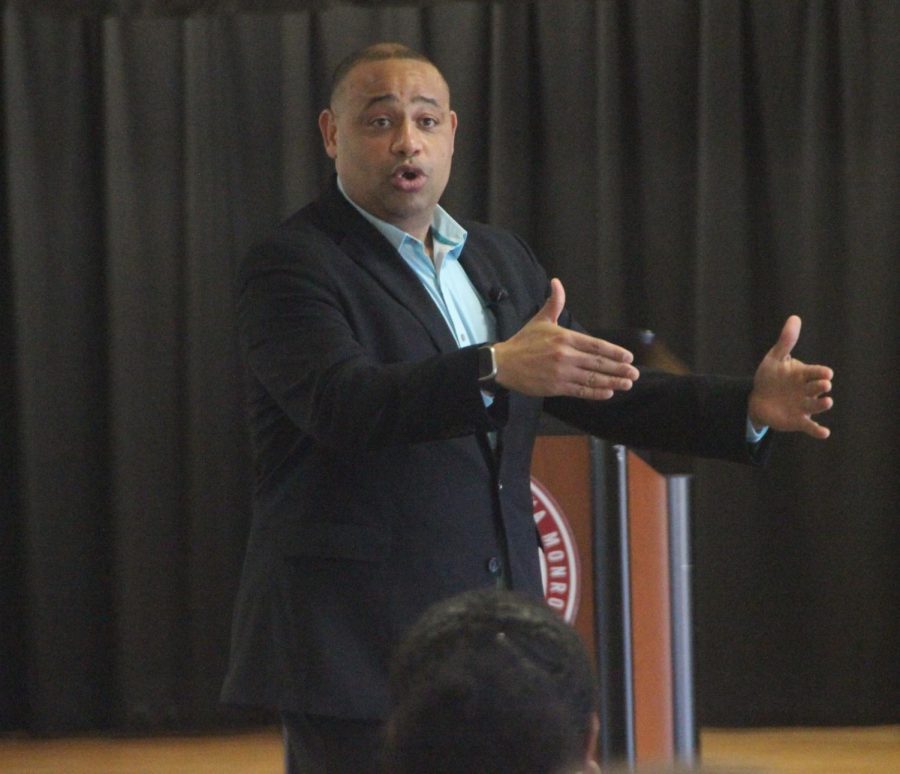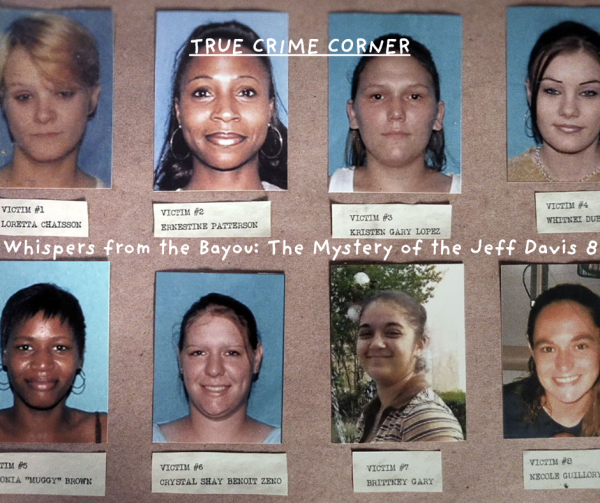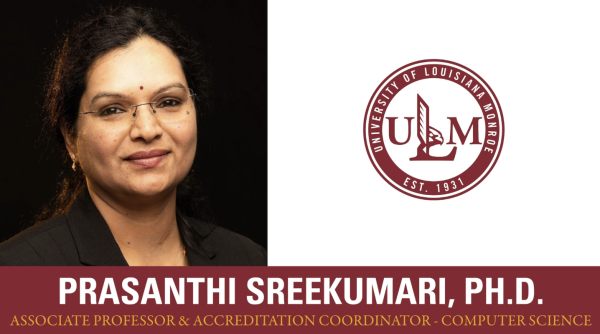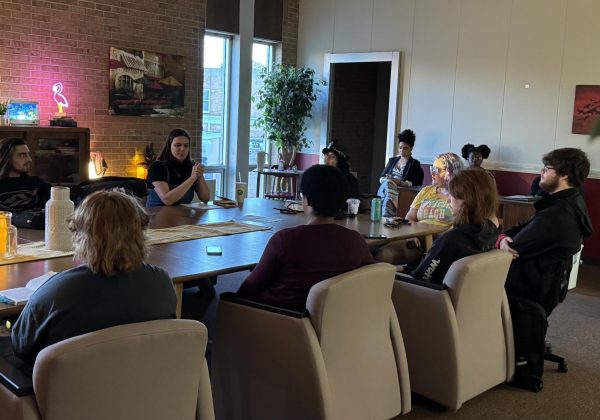CAB hosts motivational speaker for Greek Life
Leader, author and motivational speaker Joshua Fredenburg aimed to inspire ULM’s sorority and fraternity population at the Campus Activity Board’s Leadership and Emotional Intelligence Talk. With his electric personality and dynamic speech, Fredenburg was able to encourage students to become a better version of themselves by utilizing the skill of emotional intelligence.
CAB hosted the event Tuesday in the Hangar, providing free Raising Cane’s to those who attended. Members from nearly every sorority and fraternity were represented at the lecture. Sidney Jones, CAB’s interim president, was excited about the turnout.
“It was awesome to host Dr. Fredenburg because of the proven impact he’s had on other student bodies around the nation,” Jones said. “I hope students become more aware of the emotional intelligence in the other students they interact with through RSOs and in everyday student life.”
Fredenburg himself was a fraternity member, and he remembers those days fondly. He recounted his favorite parts of being in a fraternity being the camaraderie and brotherhood.
Fredenburg has spoken on many television shows and written several books regarding the topics he discussed with ULM students. During his speech, Fredenburg shared anecdotes and advice about how to handle situations in professional careers where emotions can get out of control. He attributes a portion of his success to using this very skill and has since traveled to 49 different states and spoken before hundreds of thousands of students.
“My response to a negative situation determined my next step and my destiny,” Fredenburg said.
In professional situations where an individual feels undervalued and underappreciated, he said that the individual who chooses to remain in control of their emotions and handle the rejection maturely could succeed above and beyond an individual who folds to their emotional turmoil.
“All of us have words, memories or people that trigger us emotionally,” Fredenburg said during his lecture. “Having a regulation can keep you from responding to the trigger in a way that is outside of your character.”
Students were able to conduct several exercises during the lecture, including speaking with fellow attendees about identifying their emotional triggers, lessening the impact of said triggers and how to grow from encounters with the trigger. Some students shared that they would feel angry when they were disrespected by peers, while others pointed out their friends in the group that they knew they could always turn to.
Fredenburg suggested that, even though a student may not face workplace triggers on a career level, they may face emotional triggers in everyday life—such as distress over a relationship or stress about school. Practicing emotional stability in the circumstance of being cheated on or failing a test can help prepare a student for utilizing emotional stability in the workplace later in life.
Kalyn Dupoint, a communications major, enjoyed the lecture and found that the topics hit very close to home for her.
“I’ve been struggling with my mental health recently, so knowing someone like Dr. Fredenburg has gone through the same things is really encouraging,” she said.
She also said the step-by-step nature of the talk was very helpful to her, and it was unlike any other lecture she had attended for the school.
If nothing else, Fredenburg said he hoped that students gleaned from his lecture to become more emotionally intelligent.
“I hope they become more effective as leaders,” Fredenburg said. “The more emotionally intelligent you are, the better relationships you will have, the better your career will be and the bigger your impact in the world will be.”





